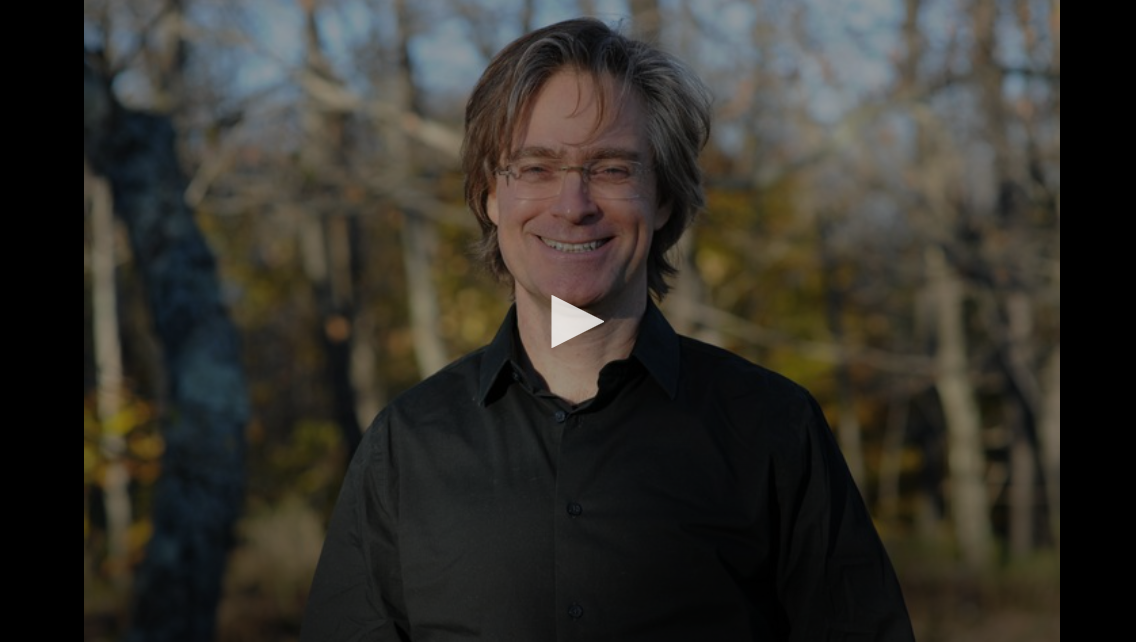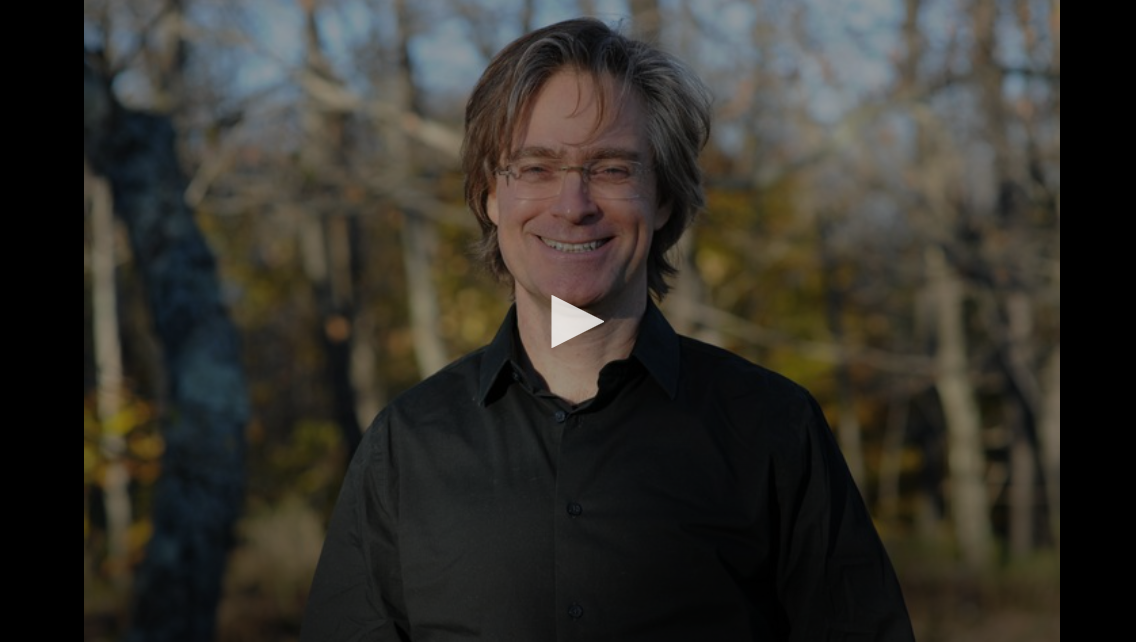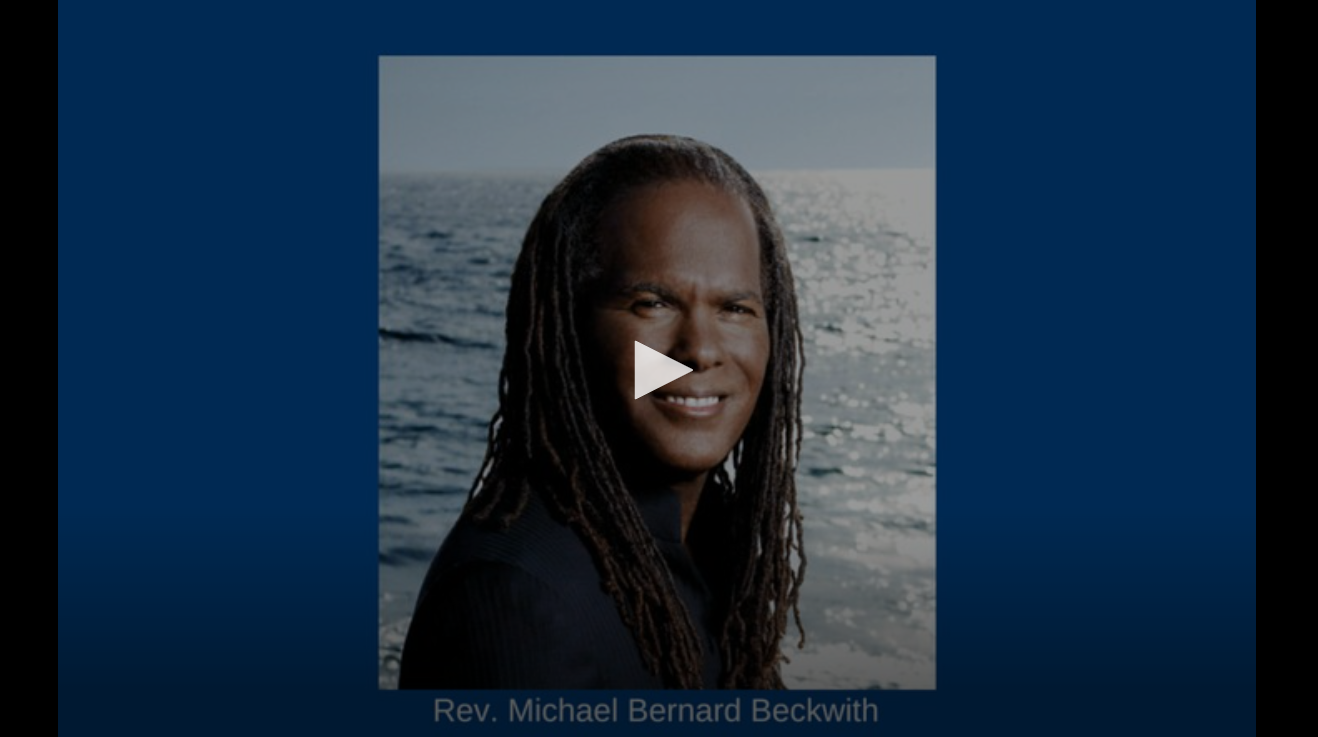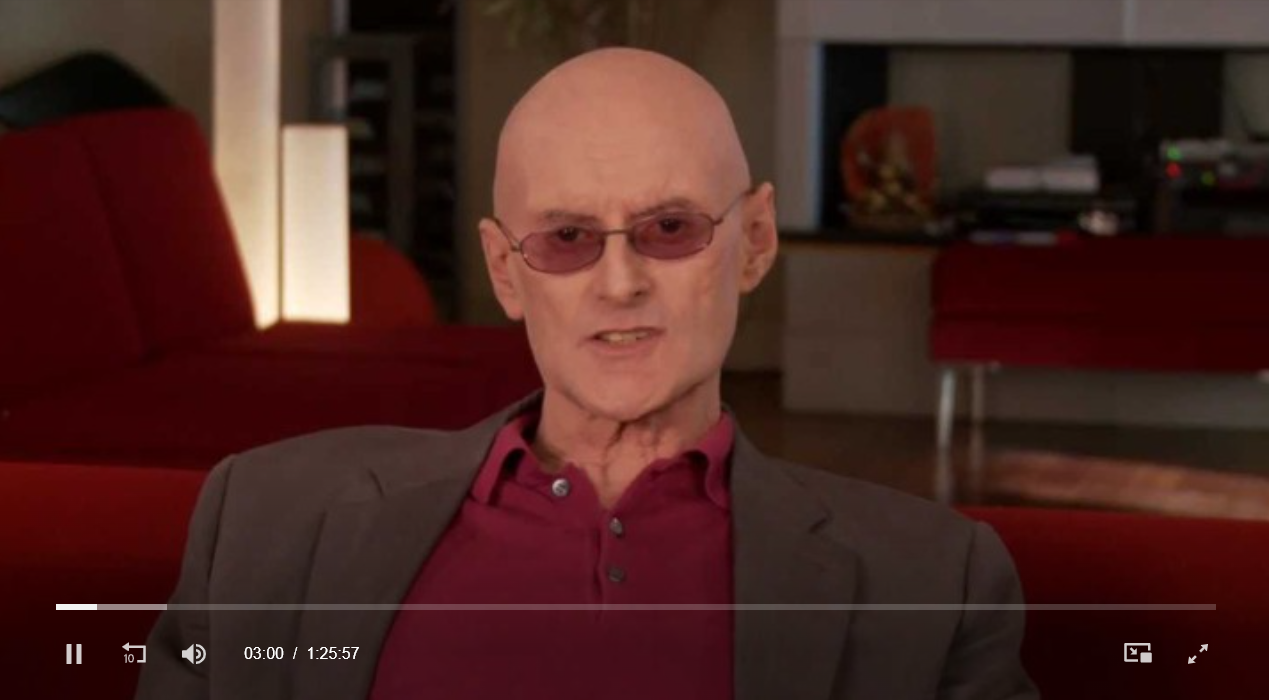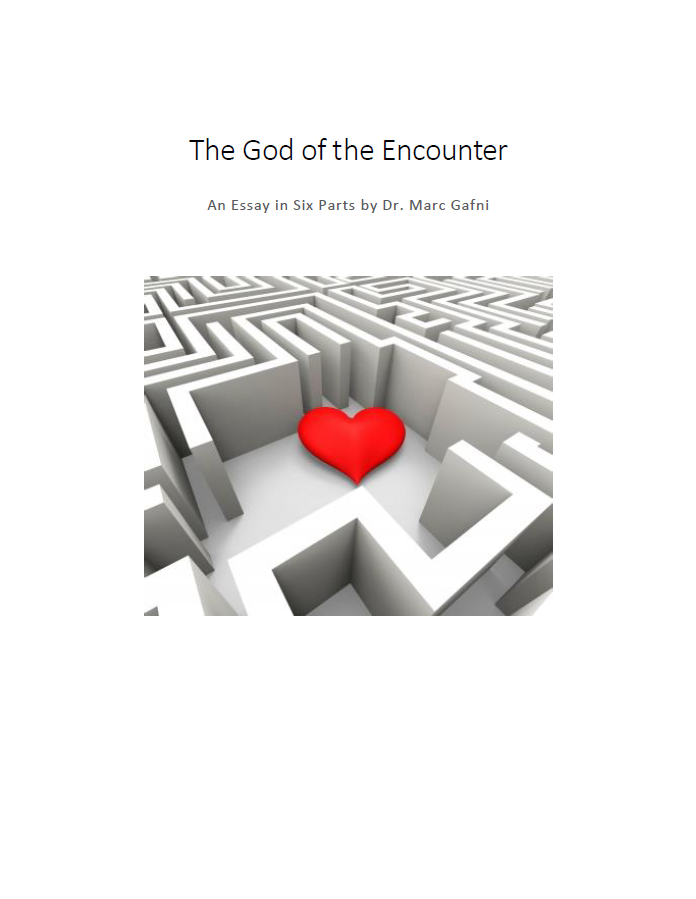Dr. Warren Farrell at CIW and Related Media
The page you are trying to reach is part of our Great Library Stacks & Archives. If you already signed up for our FREE Great Library card, please log in to access this content.
If you are not yet a Library Card owner, you can sign up to get access.
Esalen 2014: An Outrageous Love Story in 4 Acts – Act 4
The page you are trying to reach is part of our Great Library Stacks & Archives. If you already signed up for our FREE Great Library card, please log in to access this content.
If you are not yet a Library Card owner, you can sign up to get access.
Esalen 2014: An Outrageous Love Story in 4 Acts – Act 3
The page you are trying to reach is part of our Great Library Stacks & Archives. If you already signed up for our FREE Great Library card, please log in to access this content.
If you are not yet a Library Card owner, you can sign up to get access.
In the Media: Success 3.0 Summit and Center for Integral Wisdom
The page you are trying to reach is part of our Great Library Stacks & Archives. If you already signed up for our FREE Great Library card, please log in to access this content.
If you are not yet a Library Card owner, you can sign up to get access.
Unique Self, World Spirituality, and Evolutionary We Space: Wake Up, Grow Up, Lighten Up, Show Up, Open Up – by Dr. Marc Gafni
By Dr. Marc Gafni
Your Unique Self is radically singular, gorgeous, and special in the world. But it is even more than that. Your Unique Self is a puzzle piece that is utterly necessary to complete a much larger puzzle. The Unique contours of your puzzle piece are what allow you to connect with and offer your gift to all-that-is. Giving your puzzle piece unto the world adds an irreducible dimension to the completedness of the kosmos. Paradoxically, uniqueness is the currency of connection. It is the portal to the larger evolutionary context that needs your service.
But it is even more than that. Your Unique Self is evolution waking up as you. Your Unique Self is animated by its puzzle piece nature. As such it is naturally connected to a larger context that it uniquely completes. It is paradoxically through the unique contours of your Unique Self nature that the alienation of separation is overcome. Unique Self is the source code of all authentic relationships; and it is only through a fraternity and sisterhood of Unique Selves that we can begin to bring profound and loving transformation into the world.
As the great connector, Unique Self is the only technology that can create the evolutionary We space necessary to affect the evolution of consciousness. Ego cannot form evolutionary We space. At best, ego can cooperate in limited ways for the greater good. Conscious collaboration, while better then mindless competition, lacks the necessary Eros and imagination to change the world. Unique Self is drenched in Eros and imagination.
One might assume that in order to foster an authentic We space, we must simply emerge into our True Selves. This is the teaching of the classical enlightenment traditions. Yet we know that True Selves cannot create a We space. For the total number of True Selves is one. In the grand impersonal realm of True Self, there is only one and not two and therefore not relationship and certainly not evolutionary We space. It is only our Unique Selves that have trance-ended separateness and entered the larger field of We as unique emanations of the all-that-is. Only through the profound and dynamic expression of our enlightened Unique Selves can we create the evolutionary we space necessary to heal the planet. Enlightened We space in which individuals and individual systems realize enlightened consciousness beyond ego is the essential technology of transformation for tomorrow.
It is a technology we must master today for enlightened consciousness that is essential if we are to find a way to heal suffering and ameliorate needless brutality and pain. Normal consciousness produces suffering. And if you think this is but a spiritual aphorism then you have only to inquire from the hundred million people brutally tortured and murdered in the last century — all as a direct result of the mad delusions of the grasping ego. The ego of normal consciousness is insane. Enlightenment is simply sanity. In enlightened space you realize that you are part of the one. You realize that you are not alone so there is no reason to desperately grasp. You realize that you are not limited to the power, healing or fulfillment available only to your separate self. But rather you know that all of the healing, goodness, power and depth of all- that- is lives in you, as you and through you.
Not to know this is not to know whom you are. It is to be essentially confused about your identity. The confusion between ego and Unique Self is far more substantive then a person who simply thinks she is someone else. This is a minor confusion of identity and hence a minor insanity when compared with the sheer madness of mistaking your ego for Your Unique Self as your essential identity.
Why is Enlightenment Rejected by Mainstream Society?
Given the power of enlightened consciousness, which I just described, how could it possibly be that mainstream culture, both east and west has rejected the attainment of enlightenment as the essential human goal? Should not this transformation of consciousness — which can do more then any other force to heal our planet — not be the essential and even passionately yearned for goal, of both every individual and every collective. And it is not. Enlightenment is simply not part of the mainstream discourse. Enlightenment is often mocked and at best relegated to the sidelines and not treated as a genuine option for fully normal people. Why not?
The answer is simple. It is woven into the essential teaching of Unique Self enlightenment. And it is as follows. Classical enlightenment says: to attain realization you must overcome your sense of being special and realize your True Identity as part of the one. This instruction is resisted by virtually everyone, for no one wants to give up their specialness. When the price of enlightenment seems to be to give up one’s innate sense of being unique and special, enlightenment is rejected by the intelligent mainstream because at his or her core virtually everyone in the world feels special. The reigning assumption is that to be special you must be a separate self, which is the core intuition of the western enlightenment. So it emerges that the core intuition of western enlightenment — that you are separate and therefore special — contradicts the core intuition of the eastern enlightenment which says you are not separate and therefore not special. For the west the affirmation of the special separate self is seen as the key to healing suffering while for the east overcoming a false sense of separate self and specialness is the key to transcending suffering.
When a person takes their nagging sense of absolute specialness to their spiritual teacher the usual instruction is: you must leave beyond this feeling of being special for the desire and experience of specialness is a function of the unenlightened ego. This instruction — while it speaks a great truth, is at its core not fully true. It is true but partial. For it fails to make two essential discernments. Those are the distinctions between separateness and uniqueness and between Unique Self and ego. At the level of ego you are separate and you are not special. This is the core and correct intuition of eastern enlightenment. And for this reason you must get over your sense of being a special separate self. But at the level of Unique Self — beyond your separateness — as a unique expression of the one you are absolutely and ultimately special. This affirms the special dignity of the special individual, which is the core intuition of western enlightenment. But it realizes that you are special not at the level of separate self-ego but at a much higher level of consciousness, the level of Unique Self.When you realize your enlightenment you give up the small games of your ego seeking to reify its specialness. You move beyond the alienation of separate self to realize the joy of uniqueness. You give up the small self-sense of being special as you begin playing an infinitely larger game in the widest context, the game of your Unique Perspective, which is ultimately unique and special and has singular gifts to give the world, which can and must be given only by Your Unique Self.
White Paper on Unique Self & Education by Kathy Brownback
The page you are trying to reach is part of our Great Library Stacks & Archives. If you already signed up for our FREE Great Library card, please log in to access this content.
If you are not yet a Library Card owner, you can sign up to get access.
Forbes: John Mackey, Co-CEO of Whole Foods, and Marc Gafni on ‘The Unique Self of Business’
The page you are trying to reach is part of our Great Library Stacks & Archives. If you already signed up for our FREE Great Library card, please log in to access this content.
If you are not yet a Library Card owner, you can sign up to get access.
Bypassing the Energy of F..k Creates Abuse – Dr. Marc Gafni
This early draft of an essay was written in 2014 by Dr. Marc Gafni.
It will later become part of The Phenomenology of Eros by Drs. Marc Gafni and Kristina Kincaid.
Watch a 1-Minute Teaching:
Listen to Dr. Marc Gafni Reading a Version of This Essay at the 2016 Shalom Mountain Wisdom School on Outrageous Love:
Scroll Down for a Longer Video Teaching on the Divinity of F..k from Our 2014 Online Course on God Is Eros!
!
A Word on the Word “Fuck”
The degree and kind of a man’s sexuality reaches up into the topmost summit of his spirit.
—Nietzsche
Language, taught the Cherub Mystics,[1] is the building block of Reality. The word “fuck” says something that no other word is able to express. When you stop to consider, you begin to realize that fuck is one of the most fantastic words in the English language. And it says something very deep about Reality.
In some sense fuck is very much like the word God. Both words are considered unspeakable, other than in the right context. Speaking God’s Name is a sin for many religions because it holds an intensity of meaning that is beyond the ordinary. Moreover, we are not quite sure what the word “God” means. The mystery of meaning around God’s Name is part of its evocative power. And finally, the word God means different things to many different people in many different contexts. It is even strangely used as a curse word, as in “Goddammit!” What God means to you directly depends on your level of consciousness. Indeed, the God you do not believe in does not exist.
You begin to see that there is some similarity between God and fuck. Fuck, like God, is not to be spoken in ordinary circumstances. Pronouncing the word is not allowed in many contexts. Moreover, there is great confusion around the meaning of the word. Like God, it means many different things to many different people in many different contexts. The range of possible meaning is part of its evocative power. Fuck, like God, is often used as part of a curse. And like God, there is no easy stand in for the word.
The Multiple Meanings of Fuck
“Fuck” is an incredibly painful, beautiful, and magical word. Fuck is irreducible and not easily moved aside by imitators. It evokes pleasure and pain, as well as hate and love. So just to lovingly “fuck with you” a little bit, let’s look at some of the meanings of the word fuck. In broad brushstrokes, we might say that there are at least three general senses of the word.
- Fuck as an intensifier or exclamation of aliveness.
Examples: “Fucking Gorgeous” or “Holy Fuck!” Or when used alone, as in “Fuck!!!!!!” it captures the pure intensity of experience. - Fuck as playing with or pushing boundaries (of reality or relationships) or the order of things, moving towards or away from connection.
Examples: “Fuck off!” (moving away from connection, pushing boundaries), “I want to fuck you,” (moving towards, breaking through emotional boundaries), “You are fucking with me” (playing with boundaries).[2] - Fuck as being in the unknown/unknowable, or a statement of uncertainty.
Example: “what the fuck?”
In this opening section, we are going to “fuck around” a bit, in no particular order, with all three of these meta meanings of fuck, and in doing so unpack something of why the word fuck is so “fucking” important.
The first sense of fuck—as an intensifier—might express radical amazement. “That was fucking awesome!” In this sense, fuck is used to connote the intensification of experience. As noted above, it is “Holy Fuck,” or just simply, “Fuuuuuuck!!” that most succinctly capture this sense of the word. This sense of fuck can express intimacy, wonder, and allurement.
You might also say, on the negative side of things, “I’m fucked,” “She fucking sucks,” or “He is a fucking asshole.” A “fucking asshole” is a more intense form than just an ordinary “asshole.” Or, in the more positive sense, “He is a fucking saint.” Again, “a fucking saint” is significantly more saintly than a regular, run-of-the-mill saint. But in both cases, fuck is an intensifier, evoking a heightened experience or expression of reality.
Another expression of fuck is as a particularly potent way of saying “hello.” “Hello,” in its ideal form, creates connection between conscious beings. In many languages, the word “hello” is also the name of God. For example, “Shalom” in Hebrew means both hello and God’s name. Famously, the Sanskrit form of hello—Namaste—means “I bow to the God in you.” It is in this context that we understand the intensified contact made through a fuck-based greeting like “How the fuck are you?” or “It is so fucking good to see you!” This last example already points us towards the second sense of fuck.
This second sense of fuck is about moving towards, making contact, being open, alive, and awake—“Let’s fucking do this.” This second sense of fuck also expresses the playing with, breaking open, or re-ordering of the ordinary boundaries of reality. For example, to “fuck with you,” means to confuse your sense of order, to throw you off balance. This usage can have a playful sense or a more sinister sense. It might show up as, “I was just fucking with you,” as in “I was just playing with you.” Or it might be deployed as “I am going to fuck with you,” as in “I am going to penetrate the apparently well-defended boundaries of your world and turn everything inside out.” “I am gonna fuck you up” generally expresses the more aggressive quality of fuck. In both senses, fuck is a verb. This sense of fuck implies an intensity of action, which intrudes on the ordinary sense of reality and boundaries in an either playful or violent manner. A sophisticated use of this sense of fuck, “let’s fuck it open,” almost ecstatically points towards the playing with or breaking open of boundaries. But this pointing towards a broken-open or broken-down reality might also be an adjective, as in, “this is so fucked.” The second sense of fuck as rupturing from, either by stepping away or moving towards, often confrontationally, often expresses itself through rage, aggression and alienation.
The third sense of fuck is the ultimate question, as in, “How the fuck?” In this sense, fuck expresses inherent unknowing in Reality. This could be said with a positive sense of wonder and awe or with a desperate quality of confusion and terror. Fuck holds both. In this sense, “What the fuck?” is similar to the phrase “God knows,” as in “God knows, but we certainly do not.[3] Notice again that fuck and God live in an overlapping field of meaning.
Fuck might also indicate a very sharp expression of questioning, as in “What the fuck is going on here?” Or it might express a sense of mystery, as with the phrase, “Fuck if I know.”
Are you getting a sense of the magic of the word “fuck”? We are having a “fucking great time” writing this section of the book!
Continuing on, fuck can also express an almost religious sense of awe or amazement in the face of surprising and mysterious revelation. This might show up in the classic phrase “Holy Fuck!” Or, in case you wanted to underscore the point, you could double on the word fuck, as in “Holy fuck, that is fucking awesome!!”
All of these express different dimensions of both radical aliveness and encounters with mysterious sources, both of which are fundamental to the experience of Eros.
On the other side of the street, there are a host of meanings of fuck that express the sense of things gone wrong. Fuck in this sense expresses disconnection, alienation, and even degradation. Failing in a relationship might be expressed as “I fucked up my marriage.” Being taken advantage of might be “I got fucked over,” or “I got totally fucked by the company.” This indicates a sense of having been exploited or objectified—fuck expressing disconnection. Fuck might indicate a sense of unrelenting and even brutal demand: “Just fucking do it before I kick you in the fucking balls.” Here again, the quality of this expression depends on context. This might stem from a hidden love, as in the tough coach, or a brutal alienation, as in the corrupt prison guard. Fuck might also indicate a sense of exasperation, as in “Aww fuck,” or a demand that someone sever contact immediately, as in “Get the fuck out of here.” Alternatively, fuck might be an expression of extreme hostility, “I am going to knock your fucking head off,” or apathy, as in “Who gives a fuck?” Fuck might also express a sense of things gone terribly wrong, as in “This is really fucked.”
Another deployment of fuck is used to intensify the sense of disconnection, bringing together the first and second senses of the word: “This mother fucker was so fucking weird that I think he was fucking insane.” You may even say that kind of expression includes the third sense of mystery. But back to the positive side of things for a microsecond, “mother fucker” can also indicate someone who is wildly gifted or competent. On the even more dramatic rupturing side of fuck are the words of a popular tee shirt: “fuck you, you fucking fuck.” The repetitive deployment of fuck indicates an extreme loss of contact—fuck as alienation. The other person is no longer human; they are literally alien to you. The sense of fuck as expressing a breaking of connection appears in many modes. “I don’t give a fuck” indicates I have no empathy or love left for this person or situation. “You stupid fuck” is an extreme form of severing contact from the humanity of another person. “Don’t fuck with me” means do not engage me, as in “stay out of my face or I am going to fuck you up.” “This is really fucked” means this is not how things should be in a good universe operating according to moral principles. “What the fuck are you doing?” reveals a complete lack of alignment with the actions or motives of another.
Fuck and Sex
All of these meanings of fuck, however, need to be understood in light of fuck’s most common meaning, which is of course sex. In the sexual sense, fuck can be an active verb. “Jane is fucking John.” Or it can be a passive verb: “Jane was fucked by John.” It can be a noun, as in “John is a great fuck.”[4] But at the core of things, fuck expresses a dimension of the sexual experience that is not captured by the many meanings of love.
Fuck contains within it an inexorable urgency far bigger than the casual pettiness of personal whim. This is the sense of “Fuck me now,” or as it is often said without the temporal qualifier, “Fuck Me!” Sometimes, the ecstasy of the sexual leaves out even the word “me,” and fuck, by itself, becomes the central mantra of the sexual.
The Gravitas of Fuck Beyond the Sexual: Finding Your Fuck
Now, the conversation takes a somewhat more serious turn. For fuck is serious business indeed.
Fuck speaks to a primal, radical, and irreducible need. Fuck, in all of its expressions, seeks to articulate a dimension of lived Eros, which is both prior to and beyond all language and culture. Fuck cannot be denied. It is a demand which, on the one hand, lives in us and, on the other hand, is sourced in forces much larger than us. Its potency is precisely in its impersonal quality. It is exactly the paradox of that impersonal quality awakening personally in us that is the heart of both fuck’s peril and power.
When we choose fuck, then Fuck becomes conscious of itself in us. This is movement from unconscious fuck to conscious Fuck. It is in that moment that Fuck awakens as the sacred. When we deny fuck, then fuck demands its pound of flesh, virtually always devolving into its more pathological forms. Unpacking the depth of these qualities is the journey of the Phenomenology of Eros.
The sexual usage of fuck is the penultimate expression of the sense of fuck, which is about contact and connection. It is in this precise sense that the sexual models the erotic. Or said differently, the small-lettered fuck of the sexual models the erotic, capital-F Fuck of Reality.
We (the authors) often tell our students, “Find your Fuck” or “Feel your Fuck.” What this means is find and feel your radical aliveness. Find your purpose. Feel the evolutionary impulse throbbing in you. Feel the ecstatic, divine impulse for contact, intimacy, and connection pulsing[5] in you, as you, and through you. To find your Fuck, however, is not to be disconnected from Reality. Rather, to find your Fuck is to let the Fuck of Reality appear uniquely in you and as you.
Reality is allurement. Your identity is the unique constellation and quality of your allurements. Distinguishing between your authentic allurement and your pseudo-allurement, and then enacting your allurement in your life, is the very purpose of your existence. Reality desperately needs your enacted allurement. Reality needs you to Find Your Fuck. Your purpose is your telos. To find your Fuck is to find your telos—your ultimate aim.
To find your Fuck, you must first feel your Fuck. The feel of your Fuck is your Eros. It is in the sexual that you can learn to feel your Fuck. As we are sexually, so we are in the rest of our lives. The secret of the Cherubs whispers—the sexual models the erotic. Sex models Eros.
The sexual is but an expression of the core drive for contact that animates and drives all of Reality. In this very sense, we also speak of the “goodness of Fuck.” By the goodness of Fuck, we mean the radical goodness of the sexual, awake and alive in you, as the model of Fuck in every dimension of life. This is the new sexual narrative that we call Sex Erotic.[6]
Love + Fuck = Eros
Eros is a combination of Love and Fuck. Love and Fuck are not separate; they are different faces of the same experience. If they expressed the same quality of the same experience, however, we would not have two words.
Love and Fuck are not just any two words. They are two of the most popular words in existence (right up there with “God”). We have both words because they are not merely synonyms of each other. They are two aspects of the same experience; they are distinct but inseparable. This leads to the realization that Love + Fuck = Eros.
Eros is the experience of radical aliveness moving towards ever greater contact. Love and Fuck are the two qualities of Eros. Love is tender, passionate, and even fierce. Fuck is the inexorable, urgent desire that ceaselessly drives towards contact. Love is the passionate longing to embrace. Fuck is the unrelenting urge to merge.
When love loses the quality of fuck, then our lives become disconnected from the larger stream of life. Love becomes pallid. We wonder—secretly shamed—why love does not fill us. We suffer from the denial of fuck. The denial of Fuck is not a detail; it is the ultimate denial, and therefore the abuse and suffering it generates is equally large. We know that Fuck cannot exist without love; the denial of love brings monumental suffering. But we have forgotten that love cannot thrive without the feeling of Fuck.[7]
Fuck is the core nature of Reality—all the way up and all the way down the evolutionary ladder. When Fuck awakens in us, it expresses itself as the radical drive for contract and connection. It is not a uniquely human impulse, but rather the impulse of all of Reality becoming conscious of itself in us. When we feel our Fuck, we feel radically alive and at home in the Cosmos. We are filled with an unmistakable Eros and telos (ultimate aim). We begin to live purpose-driven lives, which drip with the nectar of Eros itself. Our lives become telerotic.
Fuck Is Our Birthright
Our bodies and hearts know that Fuck is our birthright. Fuck is not merely an intensifier of the ordinary. Rather, it points to the extraordinary—the true index of our deepest desire.
The failure of Fuck is the loss of aliveness, which Wilhelm Reich correctly diagnosed as the “emotional plague of mankind.”[8] It is not the loss of a particular privilege or experience; it is the deadening of all experience. The disconnection from Fuck is cause for the loss of our unmediated knowing that life is good. When we become alienated from Fuck, we forget our true identity and lose our dignity. We forget that we are good children of a Universe that desires our transformation.
It is in the dignity of Fuck that we recognize the glory of our true situation.
It is in the dignity of Fuck that we are personally addressed by Reality.
It is in the dignity of Fuck that we know that we are needed, desired, and chosen by All-That-Is.
The Exile of Fuck
It is for all of these reasons that the loss of Fuck is more than merely painful. It is intolerable. We cannot stand it. The result is a two-stage process of disintegration.
The first stage is the exile of Fuck. We exile the great Fuck of Reality to the exclusively sexual. The fuck of the sexual attempts to hook us up to aliveness. But when Fuck is limited to the sexual, the hook up does not work. We wind up with some version of four incomplete Sexual Narratives:[9] the narrative that sex is positive, negative, neutral, or sacred (because it makes babies). But in all of these narratives the fuck of sex is disconnected from the larger Fuck of the Cosmos.
The second stage of the downward-spiraling process is the degradation of Fuck. Fuck becomes a curse word. “Go fuck yourself” expresses the desperate pain of a person caught in the illusion of a flatland universe without fuck. Our own exile is reflected in the exile of Fuck into its degraded expression, “fuck.”
Bypassing Fuck Creates Abuse
The loss of the larger sense of Fuck reduces it to the mere fuck of sex. This, by its very nature, creates a rupture of contact and severing of connection that fosters the abuse of sex in all of its forms. Sex is abused when it is cut off from the larger context of Eros in which it lives. When sex is disconnected from the larger Fuck of the Cosmos, it cannot help but collapse in on itself because we are asking far too much from it. Sex then often implodes into every form of addiction and abuse.
It is only when sex becomes a portal to the unique potency that flows through us from Source—what we have called Sex Erotic—that the dignity and delight of Fuck is restored. When sex is cut off from our total being, from our deeper wholeness, and we ask it for favors it cannot grant, then fuck becomes a curse word.
The Liberation of Fuck
We are using the word Fuck with great intention, a dash of delight, and complete awareness and gravitas. We are using the word Fuck because the word itself matters. We are using it not to provoke or be superficially daring in some juvenile attention grab. Rather, we are using the word Fuck because we know that bypassing the energy of Fuck is a disaster. Bypassing the word and energy of Fuck fucks things up in big ways, in pretty much all fronts of life. The energy of Fuck is held in the word Fuck. In the mystical traditions, part of the emergence of new consciousness is when people begin to pronounce the unutterable—the Name of God. We need to restore the dignity of fuck by uttering the word Fuck not in a casual way, but as an iteration of God’s Name.
God Is Fuck
We need to liberate the great Fuck of Reality from the narrow fuck of the merely sexual. Fuck has been exiled into the sexual. But this is only the first exile. In the second exile, fuck has been banished even further. In this second exile, fuck is not identified with all of the sexual, but only with its degraded forms expressed in pornography, rape, violence, and dehumanizing sex. It is only by entering into the full desire of Fuck—and realizing that it is the primal desire of Cosmos for contact and connection awakening in us—that we are able to embrace the fully dignity of Fuck. God is Fuck.
Freud wrongly reduced all Eros to sex. He thought that culture was lower-case fuck in disguise, and that it covered up libido straining for expression. And yet all Fuck yearns for Infinity. This is the new sexual narrative of Sex Erotic, whose earliest seeds come from in between the sexually intertwisted Cherubs in the holy of holies of the Jerusalem Temple.
The Universe feels and the Universe feels Fuck. In that precise sense, Fuck is the Name of God. The greatest human desire is to participate in the Fuck of Reality. But we are afraid of the feeling of Fuck. It makes us feel out of control or vulnerable in a way we would rather deny or repress. But it is only by entering the feeling of Fuck, and tracing it back to its original Divine Source, that we begin to live the erotic life. The feeling of Fuck is the incessant desire of the Universe to contact new forms of itself in order to birth new creations from the joy of that contact.
God Is Love; God Is Fuck
There were legions of well-meaning people, liberal and conservative alike, who all told us not to use the word Fuck/fuck in this book. But they grew ever more insistent and shrill when they heard that one of the core realizations of the erotic life can be summarized in three words: God is Fuck. Never mind that this truth is rooted in the most central teachings of both ancient mysticism and modern science, as we will see. Never mind that it is true, they said. “This is a truth that cannot be spoken.” Even the people who got it said we should not say it. “Don’t say it because it is
too dangerous,
too shocking,
too easy to confuse with vulgarity,
too provocative,
and just too… much.”
There was a great demand to leave this teaching out, or at the very least to “tone it down a notch” by not using the word Fuck/fuck.
Why don’t we just say that “God is Love?” The reason, as we have already pointed out, is that God is Love is only half of the story. First, God is Love, for most people, implies an anthropomorphic god, entirely separate from Cosmos, who loves you much like your grandfather might. Or, in a more mystical reading of God is Love, it speaks of a caring, kind, and compassionate Cosmos.
But the quality of “God is Fuck” is not only soft and gentle; it is not all sweetness and light. This Love that drives the Cosmos is outrageous and fierce. This love is animated by an inexorable force that lies at the very Heart of the Cosmos. This is not a polite or well-mannered desire.
This force is a raw and primal desire for contact. It is the desire for Fuck. Fuck will not be bypassed and will not be muted. Fuck is a desire, which refuses to be ignored or denied. It is this raw desire for Fuck that animates all of Reality, including you.
At the core of Fuck is the very essence of life and the holy itself. Therefore, we need to liberate Fuck and not bypass it. As is already becoming clear, the liberation of Fuck has absolutely nothing to do with promiscuity, and certainly nothing to do with any form of demeaning objectification or abuse. It’s precisely the opposite, actually.
Meditation on the Name of God: The Name of God Is Fuck
This entire Phenomenology of Eros body of work can correctly be understood as a Meditation on the Name of God.
A central practice of the erotic mystics, recorded in the texts of the interior sciences of virtually all the great traditions, is to meditate on the Name of God. The Sufi Masters meditated on the Ninety-Nine Names of God, the Hebrew Masters on the Seventy-Two Names from the Kabbalah, and Christian practice in Christ does the same.[10]
Let’s turn to the fascinating realization of Fuck that forms the core of the twin forms of gnosis: mysticism and science. Mystics talk about this in their way, and science talks about this in its way.
The ancient Hebrew mystics, for example, say it unabashedly: The Name of God is Fuck. The only way to embody a sex beyond shame is to realize that the Name of God is Fuck.
The classic name of God was spelled Yod He Vav He (YHVH):

The first two letters (moving from the right because Hebrew text reads opposite English texts)—Yod and He—are the masculine and feminine; not man and woman, but masculine and feminine, or what we call lines and circles.[11] These are the two primary forces of Cosmos. The Universe, in every moment, every situation, every person, every entity, every dynamic, is the play between the line qualities of autonomy and independence on the one hand, and the circle qualities of attraction and allurement on the other. Science reminds us that it is the constant dance between attraction and repulsion that shapes the structure of Reality. Reality is the play between the line qualities of thrusting forward and directionality on the one hand, and the circle qualities of including and connection on the other. This is the Fuck of the Cosmos, which is the Name of God.
The Yod enters the He. We call this “constant Fuck,” following the wisdom of Solomon. It is the “sustained” or “perpetual” Fuck that lies at the center of Reality. The force of Fuck is the force of desire itself, built into the source code of Reality. Science says the same thing in its language. Desire, or what the cosmologist Brian Swimme calls “cosmic allurement,” is the essence of Reality itself.
Attraction, or allurement, is built into the very structure of the Universe. For example, the standard model of particle physics explains that electromagnetism causes atoms to form. Atoms are the basis of matter. A molecule is made up of atoms. Stable atoms have an equal number of positively charged protons and negatively charged electrons. This balances the electrical charge of the atom. But if the electrical charge of the atom is neutral, then what makes neutrally charged particles come together? How do the particles stick together? How do these atoms come together to form the molecules that are the building blocks of material reality? The answer is Fuck.
In most of the known elements, e.g., hydrogen (H), lithium (Li), and sodium (Na), the orbital electron shells[12] of the atoms are what science calls incomplete. Simply said, that means that the outermost shell of these incomplete atoms is not fully filled. Incomplete atoms are really hungry for a configuration of intimacy with a completely filled outermost shell. They are relationship hungry. They desire relationships. They are allured to other atoms with likewise incomplete shells. This is Eros. This is Fuck. This attraction, this allurement, is the base for the formation of molecules that make up all matter. This is the sustained Fuck. The Yod that is constantly entering the He.
There is, however, a second form of Fuck, in which human beings play the primary role. The last two letters of the Name of God are the Vav and the He. The Vav only enters the He when human beings arouse the Divine Fuck. You arouse the Divine Fuck when you live the unique quality of your full Eros and aliveness in every dimension of your life.
Recovering Our Memory of Fuck
The Great Fuck of the Cosmos has been forgotten. We forget that we live in a Reality whose core principle is allurement. We have lost our memory. For the Greeks, the loss of knowledge is the source of all evil. For the erotic mystic, it is the loss of memory that is the source of all evil. Our failed memory of Fuck is the source of great pain and confusion. On the one hand, we forget that, in accordance with quantum theory, Reality is coming in and out of existence in every second.[13] Some mystics call the interior of this same phenomenon “constant creation.” Constant creation comes from fierce and Outrageous Love—what the Mystics call Zivug Matmedet, or Constant Fuck—which Fucks Reality into being in every second.
It is not only that we have forgotten. Our denial of Fuck is so desperate and intense that we have forgotten that we have forgotten—what the Greeks called “Léthē.” And yet, in the midst of our amnesia, we yearn to participate in the Fuck of the Cosmos. Anything less will not satisfy us. We yearn for what we have forgotten. The result is, however, that we cannot explain our yearning to ourselves. We no longer understand our innermost drives. We have lost touch with the radical yearning for intense contact that is the axiomatic desire of Reality, alive in us.
We need to remember that if God is Fuck,
then it is no less true that Fuck is God.
Fuck must be engaged with rapture and reverence,
not only when it is sweet and tender,
but even when it is raw or rough.
All fuck is part of Fuck.
The fragrance of Fuck is always a rumor of Divinity.
God is Fuck,
Fuck is God.
Footnotes
[1] The cherubs are two figures that live atop the Ark of the Covenant in Solomon’s Temple in Jerusalem. According to the sacred text, the voice of God “speaks from between the two cherubs,” (Numbers 7:89). What is not known from the sacred text, other than to initiates in the esoteric tradition, is that these two cherubs are locked in ecstatic sexual embrace. The voice of God speaks from between the sexually entwined cherubs. The “secret of the cherubs” will continue to be a theme throughout this book.
[2] Another way to imagine fuck as breaking boundaries is through the embodiment of destruction or deconstruction, as in “I’m fucked up” (my sense of reality is deconstructing) or “my car is fucked” (my car is in really bad shape).
[3] “What the fuck” indicates disorienting uncertainty which may still be seeking to orient to the situation, while “God knows” has a quality of giving up on ever understanding a situation or dynamic. Both, however, overlap in their quality of disorienting uncertainty.
[4] (Osho, The Great Pilgrimage: From Here to Here, English Discourse Series, Talks given in 1987) Chapter #23: “Knowledge is the corpse of knowing.” Section: “What is the most important word in our language?” There is also a book that published these talks in 1988, with the same titles.
[5] This is how we come to understand the nature of Eros as seeking greater evolutionary wholeness, as we will see. Eros, felt as aliveness, moves toward ever greater contact, intimacy, and connection.
[6] On the new sexual narrative that we call Sex Erotic, see Gafni, Marc and Kincaid, Kristina, A Return to Eros: The Radical Experience of Being Fully Alive, BenBella Books, Inc, 2017. For some excerpts, see here: https://worldphilosophyandreligion.org/drs-marc-gafni-kristina-kincaid-excerpts-from-a-return-to-eros/.
[7] We want to remind the reader of the sometimes unconventional deployments of Capitalization, in this case seen most clearly in sometimes capitalizing, and sometimes not, the word f/Fuck). This is an invocation of divine quality into otherwise ordinary words.
[8] See Reich, Wilhelm. The murder of Christ: the emotional plague of mankind. Vol. 1. Macmillan, 1953. See also Reich’s People in Trouble: Volume two of the emotional plague of mankind. Vol. 2. Macmillan, 1976.
[9] On the four sexual narratives, see Gafni, Marc and Kincaid, Kristina, A Return to Eros: The Radical Experience of Being Fully Alive, BenBella Books, Inc, 2017. For some excerpts, see here: https://worldphilosophyandreligion.org/drs-marc-gafni-kristina-kincaid-excerpts-from-a-return-to-eros/.
[10] For a contemporary expression of this practice in the Christian tradition, see https://www.cofchrist.org/spiritual-practice-meditating-on-gods-name.
[11] On lines and circles, see for example Isaac Luria, Sod Iggulim Ve-yosher. Jerusalem 1964. For a discussion of this Lurianic distinction, see Marc Gafni, The Mystery of Love, Atria, 2003, “Chapter Eight—Circle and Line: The Dance of Male and Female.” For classical Kabbalistic texts expressing the masculine feminine polarity in the Name of God, see, R. Moshe Cordevero’s Pardes Rimonim (Orchard of Pomegranates), R. Yosef Gikatilla’s Sha’are Orah (Gates of Light), See also Sara Schneider’s Kabbalistic Writings on the Nature of the Masculine and Feminine, a carefully annotated translation and rudimentary analysis of a classic set of mystical Hebrew texts related to this trope.
[12] The orbital electron shells are a simplified model pointing towards the erotic dance of the electrons around the atomic nucleus. In that model, developed by Niels Bohr in 1913, an electron exists in the lowest energy shell available, which is the one closest to the nucleus.[For more about the Bohr Model of Electron Shells, see, for example, here: https://bio.libretexts.org/Bookshelves/Introductory_and_General_Biology/Book%3A_General_Biology_(Boundless)/02%3A_The_Chemical_Foundation_of_Life/2.05%3A__Atoms_Isotopes_Ions_and_Molecules_-_Electron_Shells_and_the_Bohr_Model.]
[13] The quantum vacuum, for example, tells us that some elementary particles and waves simply leap into existence. A quantum vacuum is the quantum state with the lowest possible energy. According to our present-day understanding, it is however never truly empty but rather contains electromagnetic waves, gravitons, photons, dark energy, and virtual particles that pop in and out of existence. Microwave technology invented for radar in the world-war era was co-opted to great avail in physics experiments interested in measuring particle interactions. The Lamb shift experiment was based on a discrepancy between theory (Dirac equations) and experiment in measuring two energy levels within the hydrogen atom. It was discovered that the cause of the discrepancy was interactions between vacuum energy fluctuations (free electrons) in the Maxwell field and hydrogen electrons bound to the proton as they revolved around the proton.
Watch This Teaching on the Divinity of Fuck from Our 2014 Online Course on God Is Eros
Audio Podcasts
On this page, you find our audio content: Podcasts, Dialogues, and Lectures on CosmoErotic Humanism.
To find these videos organized by topic, please visit our Topics page on the Top Menu.
Enjoy!
Audio Podcasts, Thought Leader Dialogues, & Lectures in Audio Format on CosmoErotic Humanism
To open the full post with the audios and more information, please click on the headings below.
Thought Leader Dialogues & Lectures on Soundcloud
From Deconstruction to Reconstruction: Marc Gafni and the ‘Unique Self’ – A White Paper by Kathy Brownback

Most likely you’ve asked yourself some of the same questions I’ve been asked by […] students:
- “People keep telling me to be myself, but I don’t really know who that is. I feel pulled in so many directions.”
- Do we have free will, at all? Or are we totally determined by our genes, and conditioned by our environment?”
- “Why, in the midst of all they have, are so many people angry and dissatisfied? Can I hope to avoid this? Why is there so much addiction? Why depression, among people who have so much to offer?”
- “I haven’t found any kind of God I can believe in, yet I somehow feel there is something more to life. Your thoughts?”
- “Are science and religion looking at the same world? They seem so contradictory. Your husband is a physicist. Do you argue about this?”
- “Is there such a thing as truth? Is there anything I can be certain of?”
- “Do you think life has some kind of point, or meaning? Or is it, as Shakespeare said, ‘a tale told by an idiot’? It really feels that way. Then all of sudden, even though I have no real answers, the feeling goes away.”
She also asks what role contemplative practices should play in education and academic life and what they might have to do with the study of science, or the humanities and the arts. Should they have a place in the curriculum?
 Contemplative practice can encourage the ability to focus and enter into a subject with minimal distraction and interruption. It can help a great deal with stress reduction.
Contemplative practice can encourage the ability to focus and enter into a subject with minimal distraction and interruption. It can help a great deal with stress reduction.
Moving more deeply, it can foster the capacity to hold apparent contradictions in tension with each other without immediate dismissal of one side. It can encourage you to listen to and help develop the ideas of others from a less egoic perspective—and to see connections between disciplines that infuse their understanding of each other. It helps provide the space for deeper creativity and inspiration.
At its most profound level, contemplative practice has the potential to help you reconnect with a deeper sense of purpose, meaning, and value in your life.
This spring term Kathy Brownback taught a class in Mysticism for uppers and seniors.
From the course description:
It has been said that all religions converge in the contemplative tradition—the great world illuminated by the swamis and yogis of Hinduism, the core meditation practices of the Buddha, the Kabbalist teachers of Judaism, the Sufis of Islam, and the Christian mystics. What can we learn by reflecting on their teachings and their practices? How do they connect with current research on the mind-body connection? How do these make possible a deeper sense of self, or what we might call the “unique self”? What does it mean to speak of wisdom as a kind of knowledge? We will consider selections from all the major faiths, from the ancient texts of the Upanishads to the poets Rumi and Meister Eckhart to modern writers such as Marc Gafni and Pema Chodron.
Essentials: What Is an Activist Think Tank?
What Is the Center for World Philosophy & Religion?
The Center for World Philosophy & Religion is an Activist Think Tank. It is a group of people who think about the structure of the way things work and how we can make it better. We are engaging the deep structural issues that affect how society works, how love flows, how compassion unfolds, the way politics unfolds, the way economics are structured. We are inspiring action.
At the Center, we may be the only think tank of this kind in the world today. Actually, the essential source code issues – how to create a shared language of meaning and spirit in the world today – are peripheral in our society today. It’s left to fringe conversation and never enters the mainstream to evolve the dialogue. We have started along with other visionary thinkers such as Ken Wilber along with our talented and dedicated faculty, our leadership team, and our Scholars.
We are engaging these source code issues through three primary modalities.
First, we have our Dharma Labs.
Dr. Marc Gafni also teaches live online at our sister organization One Mountain, Many Paths – Live Online Services Every Sunday at 10 am PT.
Second, we are writing a series of books and white papers which change and evolve the source code of consciousness in key areas of society. We are engaged in medicine, secondary school education, business, psychology, and the recovery movement. We are developing a practice based on “outrageous acts of love.” We are spearheading the Digital Intimacy project, a success project, and coaching. We are evolving the meaning of enlightenment through the “democratization of enlightenment” teaching, entrepreneurship, spiritual practice, our understanding of the masculine and feminine. And on and on. Each one is a source code changing move, an engagement in the ongoing evolution of love.
Third, we are offering live and evergreen online courses which have so far brought together more than 5,000 people.
Welcome to the Center, an Activist Think Tank based on Integral Principles seeking to evolve the source code of love.
Unique Self Health & Medicine by Drs. Venu & Vinay Julapalli

There is a dire need for the integration of the art, science, and morality of medicine. This paper explores the deep implications of the Unique Self in integrating medicine. Co-authors and physicians Venu and Vinay Julapalli call on their extensive understanding of the promises and pitfalls of modern health care to reconceive the practice of medicine. The paper provides the framework to evolve medicine through the emergent Unique Self insight. At stake is no less than the future of how we care for ourselves and each other.
Unique Self and the Future of Medicine
Abstract:
Medicine is at a critical crossroads in its evolution from antiquity to our modern age. This article aims to reconceive the future of medicine. Key to this conception is an understanding of the evolution of individual development. To this end, the discussion will first outline the stations of the selves, on the path to what has been termed the Unique Self by spiritual thinker Marc Gafni. Next, the discussion will distinguish between two poles of development and outlook, in order to understand how the insight of Unique Self integrates these dualities. It will then view the Unique Self from three perspectives, or four quadrants, of reality and also illustrate how Unique Self appreciates the balance between part and whole. The discussion will subsequently correlate the stations of the selves with the history of medicine and further examine dualities in medicine that parallel those of the self . It will then elucidate how an understanding of Unique Self fundamentally shifts our envisioning of the practice of medicine. This shift renews the unique calling that is the art and science of healing.
Introduction

Universal to the human experience is care of our health. Medicine is defined as “the science and art dealing with the maintenance of health and the prevention, alleviation, or cure of disease.” The topic of medicine is therefore relevant to all of humanity.In the United States, the practice of medicine has reached a critical crossroads. National spending on health care has been estimated to total $2.8 trillion in 2012, which is 18% of the gross domestic product (GDP). It is projected to increase to about 25% of GDP and 40% of total federal spending by 2037. Few dispute that this trajectory is unsustainable.
The dispute begins in how to alter this trajectory. The debate has raged on from multiple perspectives. Some have focused on the structures of payment for health care, while others have investigated the sources of health care pricing. Some have proposed the standardization of health care delivery with an emphasis on maximizing value through evidence-based medicine, while others have highlighted the role of the social determinants of health in influencing the rising costs of medical care. The Affordable Care Act, signed into law in March 2010, expanded health insurance coverage for Americans and introduced programs designed to slow spending on health care. However, there is no clear consensus on its ultimate effect in bending the health care cost curve down.
Most of the recent discussions on the practice of medicine have preferentially approached health care as an object. Evidence-based guidelines, quality measures, value-based metrics, and pay-for-performance programs presuppose an objective perspective on medicine. The increasingly acknowledged urgency of controlling spiraling health care costs has certainly advantaged this perspective, along with desires to improve patient safety and even out regional variations in health care delivery.
Somewhat drowned out in the recent movements in medicine is the voice of medical humanism. This voice presents medicine from a subjective perspective, as it highlights the individual values, goals, and preferences of a patient with respect to clinical decision making. From this perspective, paramount are factors such as honoring the dignity of patients and their families, acknowledging their cultural and ethical sensitivities, sharing clinical decision making between the patient and the physician, and upholding the autonomy of the patient in making medical decisions. Physicians voicing humanism in medicine feel that the subjective aspect is crucial in maintaining medical professionalism, demonstrating good clinical judgment, and caring for patients near the end of life. They question the effectiveness of health care based merely on utilitarian medical decision analyses, rather than nuanced conversations between the patient and physician on the patient’s perception of his/her illness and its treatment.
The two perspectives, medicine as an objective science and medicine as a subjective art, are often diametrically opposed to each other. Health care objectivists regret that “Our current health care system is essentially a cottage industry of noninteg rated, dedicated artisans who eschew standardization.” They criticize the current system as one that “overvalues local autonomy and undervalues disciplined science.” In subjective medicine, “‘Good doctors’ are celebrated for their unwavering dedication to doing whatever it takes to care for their individual patients.” In their view, this leads to excessive tests and procedures, a fragmentation of care, limited oversight of such care, and ultimately wasteful and unreliable medicine.
Health care subjectivists, on the other hand, lament that “Reducing medicine to economics makes a mockery of the bond between the healer and the sick.” They eschew the replacement of terms such as “doctors” and “nurses” with “providers,” and “patients” with “customers” or “consumers.” They feel these terms are “reductionist; they ignore the essential psychological, spiritual, and humanistic dimens ions of the relationship – the aspects that traditionally made medicine a ‘calling,’ in which altruism overshadowed personal gain.” In objective medicine, the “discourse shifts the focus from the good of the individual to the exigencies of the system and its costs.” In their view, this results in diminished independent and creative decision making, dehumanization of the patient and professional, destruction of the trust so crucial to the patient-doctor relationship, and ultimately a demeaning of medicine.
How best can we reconcile these two positions in a way that includes and transcends them both? Is there another perspective that honors medicine both as a science and as an art, without congealing the two sides into a muddled compromise that satisfies neither?
Acknowledging the instability of the current system, can we evolve medicine to a practice of greater value, efficiency, meaning, and purpose?
In the rest of this discussion, we aim to reconceive the future of medicine. Key to this conception is an understanding of the evolution of individual development. To this end, we will first outline the stations of the selves, on the path to what has been termed the Unique Self by spiritual thinker Marc Gafni. Next, we will distinguish between two poles of development and outlook, in order to understand how the insight of Unique Self integrates these dualities. We will then discuss the Unique Self from three perspectives, or four quadrants, of reality and also see how Unique Self appreciates the balance between part and whole. We will subsequently correlate the stations of the selves with the history of medicine and further examine dualities in medicine that parallel those of the self. We will finally outline how an understanding of Unique Self fundamentally shifts our envisioning of the practice of medicine. Our discussion will highlight the physician as the exemplar of the medical professional but can apply to any professional involved in caring for patients. All are included in the future of medicine.
Dr. Marc Gafni: The God of the Encounter: The Glory of the Personal, Part 1
by Dr. Marc Gafni | (part 1 of 6)

The realization of the personal which has been derided as the separate self or ego is so important that I want to ask you to enter this even more deeply with me. You need to feel a sense of this realization in your own being. You need to feel the love and care implicit and explicit in the loving personal address of the Cosmos.
There is clear a moment in where you will need to move beyond separate self and realize the underlying unity of all that is as the seamless coat of the universe. You will need to trance-end the merely personal to realize the next station on the road to your enlightenment. This will engender in you a profound love. It will open your heart in a radical and unconditional way. It will move you beyond alienation into full integration and power.
However, and this is a huge caveat, you will have to not merely transcend but to transcend and include the personal. That means that when you enter into the realm of the transpersonal space in which we are all expression of the one, you will need to realize in joy that you are a distinctive unique expression of the one . You must transcend your separateness even as you must retain your Uniqueness. The ego, when purified of its grasping and freed of its fixations, is harbinger of your Unique Self. The personal is essential to your full enlightenment as your Unique Self. Enlightenment always has a personal perspective. Enlightenment according to the Sufis and the Kabbalists is an expression of purified personal essence. Anything less will make you insane. Remember, Insanity means a loss connection with reality. Sanity means a full joyful embrace of reality. Enlightenment is no more or less than sanity. Reality is not only impersonal. It is also profoundly personal.
In order to be able to realize the personal plus–not personal minus–nature of your enlightenment, you need a deeper feeling and understanding of the realization of the personal. Remember that the personal is achieved both in the life of the individual and the life of humanity with the evolutionary achievement of the experience of separate self.
It is a transmission of something of this realization that I wish to share with you in these pages…
For more of this essay, see Part 2, Part 3, Part 4, Part 5, and Part 6.
You can also join Dr. Marc Gafni’s contacts on LinkedIn.

